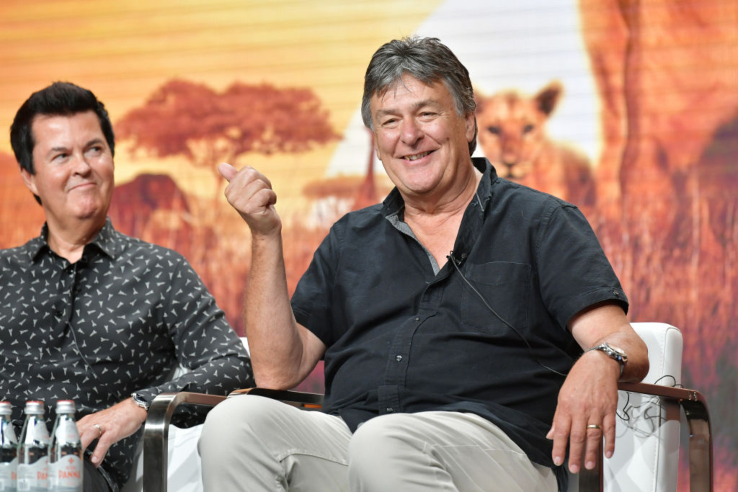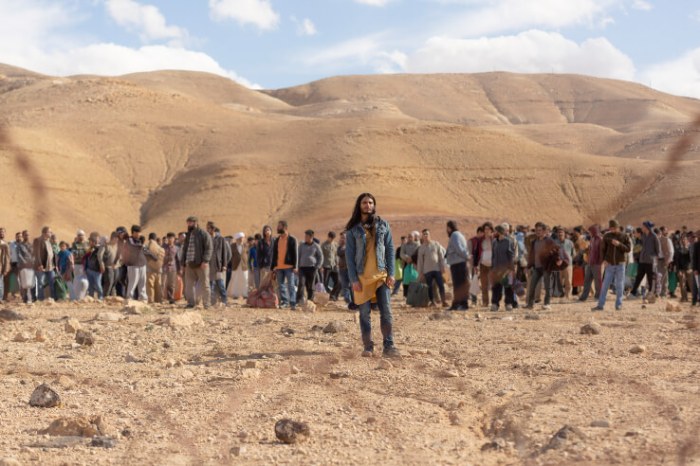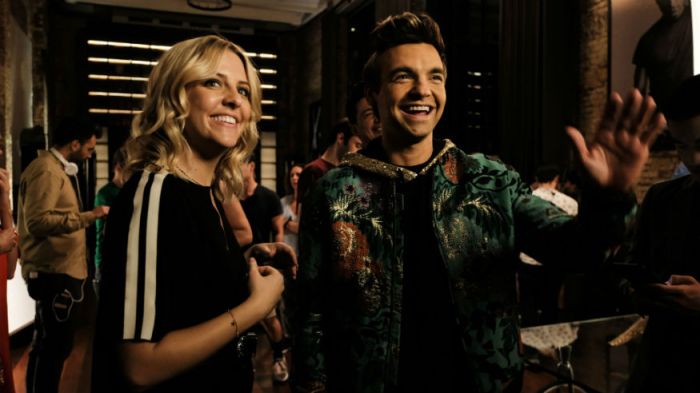Have you ever wondered what it would be like to delve into a pride of lions or a herd of elephants and really get an up close look at the relationships and connections these animals have as a family? Now you can with Discovery’s latest revolutionary series “Serengeti” directed by nature documentary expert John Downer. Downer’s dream was to get an intimate look at these magnificent animals that call Serengeti home and explore what makes them just like us. With incredible new technology and years of filming with a dramatized look rather than just a view from afar, Downer and the team working on the fascinating docuseries achieved just that. Downer sat down with Metro to give the scoop on the ground-breaking new series.
John Downer explores the close connection between animals and humans in new groundbreaking series ‘Serengeti’
Why did you choose to study the animals that inhabit Serengeti?
I think Serengeti is like nowhere else on Earth. I am still so connected with it, I’ve made so many films there in the past. But the reason it draws you back is the fact that those animals are some of the most charismatic in the world. They live literally cheek-by-jowl so they interact in a way that you don’t get anywhere else, these are just incredible animals—- every single one of them is a star. A lion’s a star, an elephant’s a star, a hyena is— normally less of a star, but still an incredible supporting role. We wanted to look at these animals in a way that hadn’t really been done before and look at the connections between them, so we needed a place with loads of connections, and they’re interacting all of the time. [We also wanted] a look into their family lives. Every one of those animals has an incredible story to tell and they are really complex. What we wanted to do was look at that behavior in a human way. Each of those animals and the way they interact and behave are so similar to our own lives.
Do you think this unique approach will help audiences connect more with the animals?
That’s certainly our intention, I think it is a way to relate to them because so often natural history—– and I’ve been making it for over 30 years now—- can be distancing. What we try to do is to explain the behavior and the emotional drive and the relationship, and all of this is based on their biology. It’s quite hard to articulate in a cold documentary, what we wanted was a dramatized depiction of those inter-relationships and their needs and desires and everything else that we relate too. That’s why we’re seeing those connections because those connections run deep, we just don’t think they’re there.
The way the series was shot was also very unique and interesting, can you tell me more about what filming techniques were used with Serengeti?
The whole style and intent was to go into the animal world rather than just see things from a distance. It was a chance to bring all of my experiences there— we used mainly what we call spy cameras which are a whole range of different cameras that can get close to those animals, even into a whole pride of lions. Such as a remote control buggy that is protected against the lions but can move among them. They very quickly get used to it and it just becomes part of the pride so you’re getting incredibly intimate views. We also get remote cameras that are triggered by the animals themselves at places like their watering holes and where we know they like to gather. We were also able to utilize the latest stabilization camera technology which meant we could film on the move on with different lenses from a vehicle without the bumps from the movement you get normally. We put those cameras on other things like the remote buggies also. So it was a chance for the first time to keep that intimate perspective while the animals travel. There was nowhere that they went and no speed that they ran that we couldn’t capture, even 40 mph— we were traveling with them while filming. So you have this incredibly energetic and close feel to transport you there. That was a dream of mine, it’s been a dream from the very beginning.

While working on the series was there anything that stood out to you or surprised you?
I think you can’t spend time with animals without learning and learning all of the time. They continually surprise you, and I’m ready for those surprises and I’m expecting those surprises. But I think that some animals that I hadn’t spent too much time with were baboons and to discover how complex those lives are and how incredibly like us they are— I wasn’t expecting that. They are the sort of animal that is not normally the star, there are so many other stars that can outshine them but when you get into their lives they are some of the most interesting because they have really complex emotional lives. That was something I was discovering as we went along. Animals are never predictable, they always bring their own surprises and those surprises then become part of the narrative. They are the big storied moments in the film.
How did it feel for you personally to watch this series that you worked for years on come alive onscreen?
I was just moved beyond words, it was amazing. We had a live audience and just to see them react to those moments was just wonderful. It’s a very rare opportunity for a filmmaker to get to do that.
Ultimately what do you hope audiences take away from the series?
We’re seeing these animals in a different way, and the whole point is that you start to understand the connection that we have with them. We as early humans walked the plains of the Serengeti with those animals and at that time we just considered those animals the same as us, just other animals— we were connected. We’ve become separated now in our own worlds, and what we wanted to do was re-ignite that connection and realize that these animals, when you delve into their lives, connections, troubles and everything else— they’re so much like us. That recognition should give us empathy, they’re more than just animals, they’re our close kin. So if people get that empathy and that makes them care, that is the most obvious conservation message out there.
“Serengeti” premieres August 4th at 8 pm on the Discovery Channel

























